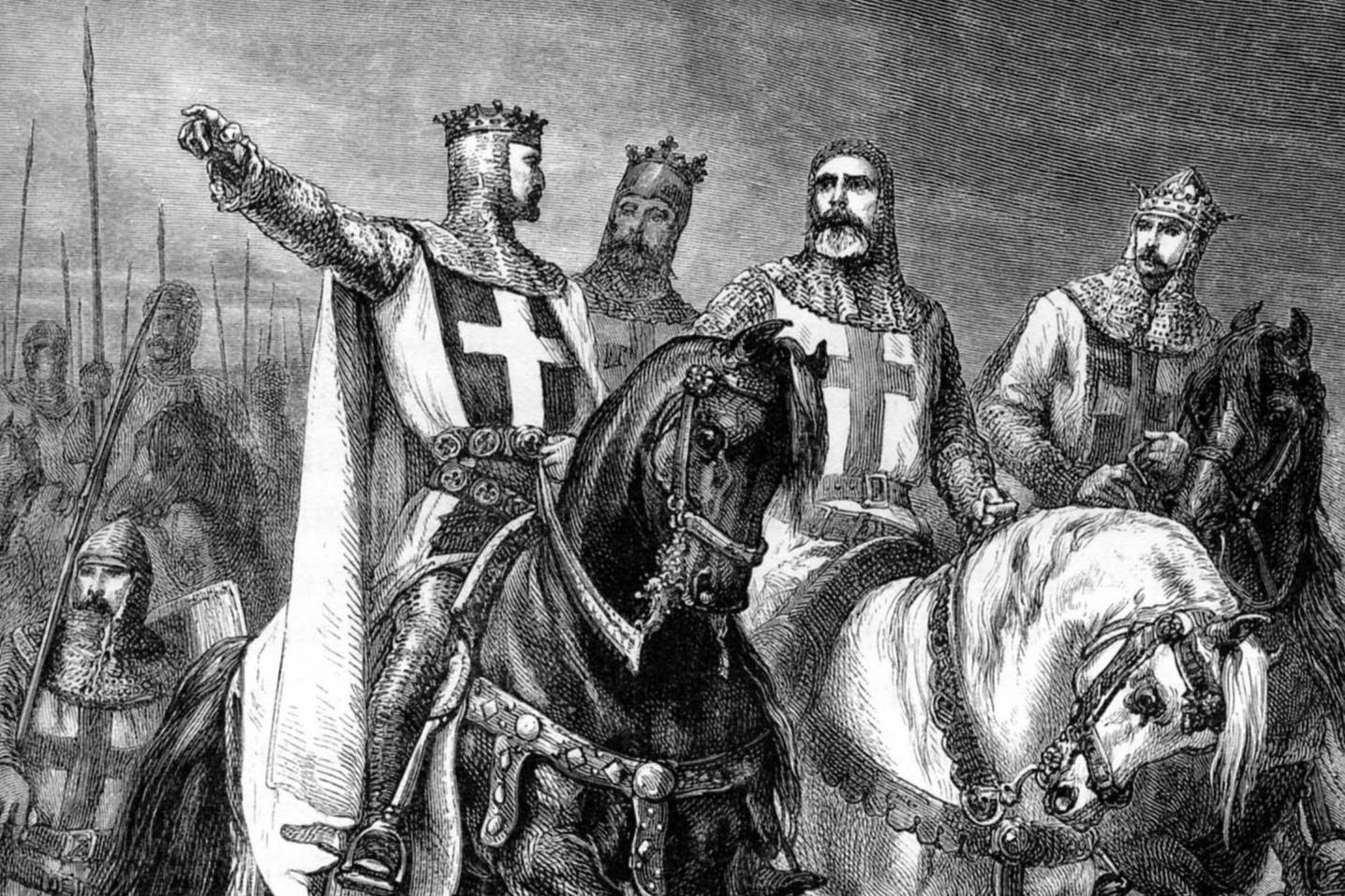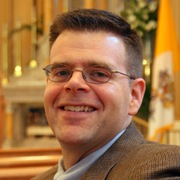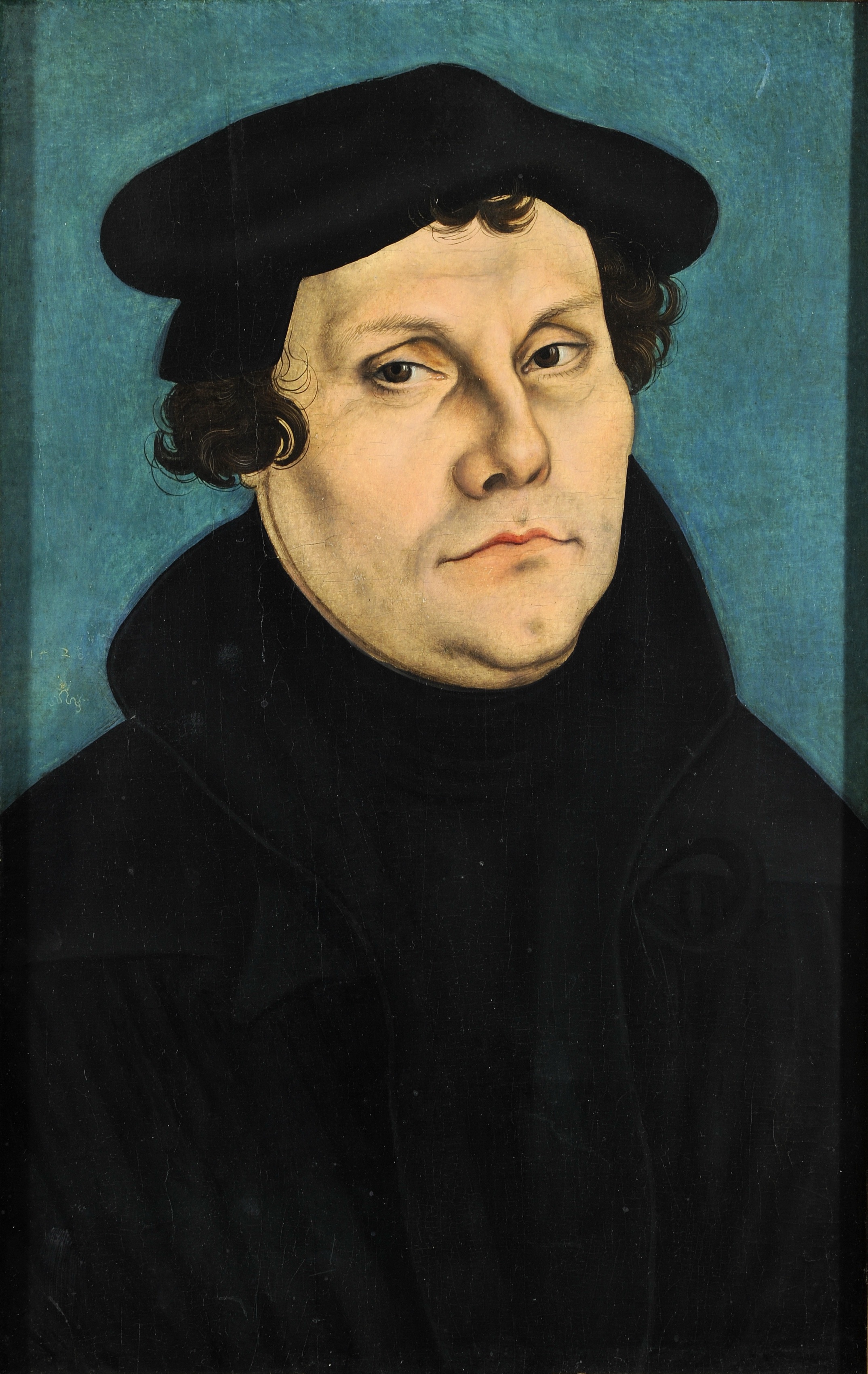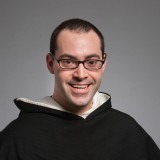

How can the Crusades be called “glorious”? Our modern mindset says they were ugly wars of greed and religious intolerance—a big reason why Christians and Muslims today can’t coexist peacefully.
Historian Steve Weidenkopf challenges this received narrative with The Glory of the Crusades. Drawing on the latest and most authentic medieval scholarship, he presents a compelling case for understanding the Crusades as they were when they happened: “armed pilgrimages” driven by a holy zeal to recover conquered Christian lands. Without whitewashing their failures and even crimes, he debunks the numerous myths about the Crusades that our secular culture uses as clubs to attack the Church.
“To recognize the glory of the Crusades means not to whitewash what was ignoble about them, but to call due attention to their import in the life of the Church.”
-Weidenkopf, Steve (2014-10-29). The Glory of the Crusades (Kindle Locations 76-77). Catholic Answers Press. Kindle Edition.
“The creation of these myths began in the sixteenth century when Protestant authors used the still-ongoing Crusades to attack the Church and, principally, the papacy.”
-Weidenkopf, Steve (2014-10-29). The Glory of the Crusades (Kindle Locations 129-130). Catholic Answers Press. Kindle Edition.
“Crusaders were portrayed as ignorant followers of superstition who participated in holy wars, which were nothing more than examples of Catholic bigotry and cruelty.”
-Weidenkopf, Steve (2014-10-29). The Glory of the Crusades (Kindle Locations 131-132). Catholic Answers Press. Kindle Edition.
“Martin Luther set the stage for the Protestant interpretation of the Crusades by seeing the Ottoman Turkish threat to Europe in the early sixteenth century as part of God’s plan for divine retribution against the evils of the Catholic Church. At the height of his revolution against the Church, Luther wrote, “to fight against the Turks is to oppose the judgment God visits upon our iniquities through them.”-Kenneth M. Setton, “Lutheranism and the Turkish Peril,” Balkan Studies 3 (1962): 142, in Madden, New Concise, 209.
“After a Turkish invasion force reached the gates of Vienna in 1529, Luther reconsidered his anti-Crusade stance and actually encouraged Christian princes (Catholic and Protestant alike) to join together to fight the Turkish horde. Of course, Luther did not actually call for a Crusade, nor did he desire a religious war resembling the Crusades. He steadfastly rejected any such notion by writing, “If in my turn I were a soldier and saw in the battlefield a priest’s banner or cross, even if it were the very crucifix, I should want to run away as though the devil were chasing me!”-Madden, The New Concise History of the Crusades, 210.”
-Weidenkopf, Steve (2014-10-29). The Glory of the Crusades (Kindle Locations 134-142). Catholic Answers Press. Kindle Edition.
“These scholars could not fathom the idea of warriors with actual faith engaging in warfare for primarily religious reasons.”
-Weidenkopf, Steve (2014-10-29). The Glory of the Crusades (Kindle Locations 191-192). Catholic Answers Press. Kindle Edition.
“Even good Catholic writers can find themselves relying on old stereotypes when discussing the Crusades. Fr. Robert Barron’s popular video series and companion book, Catholicism, strikes a condemnatory tone when discussing the Crusades. Referencing the four marks of the Church, Fr. Barron addresses the criticism leveled against the Church’s holiness and remarks, “How could one possibly declare as holy a church that has been implicated in so many atrocities and outrages over the centuries? How could a holy church have supported the Crusades, the Inquisition and its attendant tortures, slavery, the persecution of Galileo… and the burning of innocent women as witches?” 31 In Father Barron’s assessment, the Crusades are one example in a long “litany of crimes” in which even high-ranking clergy did “cruel, stupid and wicked things.” 32 He even suggests that the saintly Bernard of Clairvaux was probably “wrong, even sinful, to preach the Second Crusade.” 33
Fr. Barron’s work in this area betrays a lack of awareness of the recent and authentic scholarship on the Crusades (as well as the Inquisition) and instead relies on old, formulated, and erroneous criticisms of the Church’s historical past. Regrettably, the popularity of his (otherwise excellent) series ensures that these false narratives continue to influence the understanding of Catholics today.
Critics of the Church and even those within the Church argue that Pope St. John Paul II addressed the Crusades when during the Great Jubilee of 2000 he “apologized” for the sins of the Church; therefore, Catholics should not view these events in a positive light.
This view is not supported by the facts. John Paul II did not apologize for the Crusades; in fact, he never even mentioned the word during the Day of Pardon on March 12, 2000. In order to set the Church on a renewed footing as it entered the Third Millennium of the Faith, the pope tasked the International Theological Commission 34 to study the concept of a purification of memory that aimed “at liberating personal and communal conscience from all forms of resentment and violence that are the legacy of past faults, through a renewed historical and theological evaluation.” 35 On the Day of Pardon, John Paul II requested forgiveness from God for the faults and failings of our brothers and sisters who have gone before us in the Faith. His desire was born from a love of God and the Church in order for it to enter the third millennium free from the sins of Church members in the past. The pope not only asked God for forgiveness for the failings of past members of the Church but also called the Church to forgive those who have trespassed against it.
John Paul also recognized the importance of understanding the historical context in which the events of the past were lived, and he had no desire to pass judgment on our Catholic predecessors. 36 He did not reject the Church’s historical past, which is replete with examples of mercy, forgiveness, holiness, and grand achievement. In his September 1, 1999 general audience he expressly said that the Church’s “request for pardon must not be understood as an expression of false humility or as a denial of her 2,000-year history . . . instead, she responds to the necessary requirement of the truth, which, in addition to the positive aspects, recognizes the human limitations and weaknesses of the various generations of Christ’s disciples.”http://www.vatican.va/holy_father/john_paul_ii/audiences/1999/documents/hf_jp-ii_aud_01091999_en.html.
The Church has not apologized for the Crusades because an apology is not necessary. On the contrary, for centuries the Crusading movement was integral to the lived expression of the Faith.”
-Weidenkopf, Steve (2014-10-29). The Glory of the Crusades (Kindle Locations 228-260). Catholic Answers Press. Kindle Edition.
“An authentic understanding of historical events begins not with the present time of the historical author, but with the contemporary time of the participant. Failure to adhere to that premise falsifies history and produces a “reading into” rather than a “learning from” historical events. 39”
-Weidenkopf, Steve (2014-10-29). The Glory of the Crusades (Kindle Locations 265-267). Catholic Answers Press. Kindle Edition.
“The International Theological Commission recognized this trap and encouraged those who would presume to judge the actions of Catholics in the past to keep “in mind that the historical periods are different, that the sociological and cultural times within which the Church acts are different, and so, the paradigms and judgments proper to one society and to one era might be applied erroneously in the evaluations of other periods of history, producing many misunderstandings.”-International Theological Commission, Memory and Reconciliation, 4.2.”
-Weidenkopf, Steve (2014-10-29). The Glory of the Crusades (Kindle Locations 269-273). Catholic Answers Press. Kindle Edition.

-interview w/Steve Weidenkopf
Q. Why do you think there is such a negative connotation in most people’s minds when it comes to the Crusades? Where did the negative “spin” originate?
A. Most people’s impression of the Crusades is fostered by Hollywood movies and documentaries on TV. Although this has led to wide recognition of the subject, the presentation of the Crusades is greatly misleading, because Hollywood and TV rely on an outdated anti-Catholic narrative. The negative “spin” actually began in the sixteenth century with the Protestant revolutionary Martin Luther, who attacked the Crusades because he saw them as an outgrowth of papal authority and power. Later on, Enlightenment authors like Voltaire and Edward Gibbon (among others) shaped modernity’s negative view of the Crusades by seeing them as barbaric events undertaken by greedy and savage warriors at the behest of a corrupt papacy. This anti-religious view of the inherently religious Crusades shaped popular imagination about the events and continues to be prevalent in our own day. Thankfully, modern-day Crusade historians eschew this prejudice and are bringing to light an authentic understanding of these Catholic events.
Q. Do you think a lot of the negative connotations the Crusades have is due to a misunderstanding about the time and culture in which they occurred?
A. Yes. History is best understood from the perspective of those who participated in the events themselves. In order to properly understand the Crusades, one must understand them as authentically Catholic events in an age of faith. This does not mean that everyone in the Middle Ages was a saint or society was perfect; but it was an era in which people made radical life decisions, like going on Crusade, because of their faith in Jesus Christ and his Church. The modern secular humanist world greatly struggles to understand the authentic religious worldview of the medieval period. The Crusading movement was a Catholic movement. Popes called for them, clerics (and saints) preached them, and Catholic warriors fought them for spiritual benefits. The Crusades cannot be properly understood apart from this Catholic reality.
Q. Your approach seems to be going against the normal apologetic arguments. Instead of merely defending the Crusades, you speak of their glory. What do you mean by that?
A. The glory of the Crusades means the movement was a very important one in the life of the Church (it occupies 600 years of Catholic history). It’s a historical phenomenon that all Catholics should know more about in order to defend the Church against modern-day attacks. In the Old Testament, the Hebrew word used for the “glory” of the Lord is kabod, which means “heavy with weight,” or something of great importance. It’s in this manner that I talk of the glory of the Crusades. They were very important events in the life of the Church, and since modern-day critics use historical events like the Crusades to attack the Church, it’s important for Catholics to know our authentic history and refute the myths. Basically, to recognize the glory of the Crusades means not to whitewash what was ignoble about them but to call due attention to their import in the life of the Church.
Q. What do you hope to accomplish with your new book?
A. To allow readers to see the Crusades from the perspective of those who participated in them. This authentic story is present among Crusade historians, but despite their best efforts it remains within academia and has not replaced the more common false narrative. I hope my book can help bring this great scholarship to a wider audience. I want to arm Catholics with the truth about the Crusades so they can not only defend the Church but also be filled with a healthy sense of Catholic identity.
Q. Given the current state of the world, do you think that a modern version of the Crusader has any place in the life of the Church or society?
A. Well, our modern world is politically and religiously different from the medieval period, but we can learn much from our brothers and sisters in the Faith who lived during the time of the Crusades. The Crusades are filled with the stories of heroic men and women who risked all for love of Christ and his Church and who were concerned for their own salvation. Their deep faith and desire to place themselves completely at the service of the Church for a greater cause is praiseworthy and should motivate modern-day Catholics. The Church today is in need of defenders, and even more importantly the world is in need of the saving message of the gospel. Every Catholic is called to participate in evangelization, and our recent popes have called for a New Evangelization to bring Jesus to those areas that are lukewarm or have rejected the Faith. We can look at the zeal of the Crusaders to motivate us into giving more of ourselves for Christ and his Church in an age that is desperate need of both.
Q. First, we’ll get to a question that has gotten a lot of press lately: do Christians and Muslims worship the same God?
A. In the document Lumen Gentium from the Second Vatican Council, the Church teaches that Christians and Muslims “adore the one and merciful God” (LG 16), so I think it is appropriate to say that Christians and Muslims believe in the existence of one God. But what we believe about the nature of God is vastly different. Dr. R. Jared Staudt wrote an excellent article that addresses this very important distinction (“Islam, Violence, and the Nature of God,” Catholic World Report, Sept. 2014). Islam does not view God as Jesus revealed him to be: a loving Father who desires our salvation and sent his Son to accomplish that task. Additionally, Islam rejects the Trinity, Christianity’s fundamental doctrine on the nature of God. What one believes about the nature of God shapes how one views and responds to others, and this is clearly manifest in the history of Islam and the Church.
Those alive during the Crusading movement did not believe that Christians and Muslims worshiped the same God. They recognized that Muslims professed a belief in one God, but they definitely understood that Muslim belief about who God is was not in keeping with Catholic teaching.
Q. Can you compare the threat of Islam during the Crusades to the threat of Islam today?
A. Obviously, the geopolitical environment of the Crusading movement and that of today are quite different, so a direct comparison is not possible. But one can observe some similarities. Native Christians in Muslim-occupied territories of the late eleventh and twelfth centuries were harassed by various groups of Muslims, just as indigenous Christians today are persecuted. From its origins, Islam is a violently expansionist movement bent on the acquisition of territory. Within a century of Mohammed’s death in A.D. 632, Islamic armies conquered most of the ancient Christian territory in the Holy Land, North Africa, and Spain. ISIS is an Islamic organization that follows the teachings of Mohammed to expand the House of Islam through violent jihad. The establishment of the caliphate by ISIS, its conquests in Syria and Iraq, its persecution of indigenous Christians, its terrorist operations, and its infiltration of the West through propaganda and emigration all pose a significant threat to Western civilization.
Q. It seems that the Church has undertaken most of the historical battles against Islam, be it the Crusaders or the Holy League at the Battle of Lepanto. Why do you think that is?
A. The rise of the Islamic movement in the seventh century was a crisis of epic proportions for the Christian world. Since Islam arose before the advent of powerful nation-states, the Catholic Church was the one international institution that could rally the desperate forces of the Western world to meet the threat. Before the Crusading movement, local Catholic rulers and warriors mounted defenses against Islamic invaders. The papal reform movement in the eleventh century freed the popes from the interference of secular rulers and allowed the popes to lead a united effort against the forces of Islam. In the beginning, papal leadership was very successful and important in the Western world’s response. But as the geopolitical environment evolved through the centuries, secular rulers became focused on their own political goals and were less inclined to listen to popes. As an example, Pope Pius II (r. 1458-1464) pleaded with the rulers of Christendom to mount a Crusade to retake Constantinople after the city fell to the Ottoman Turks in 1453. Most rulers ignored him, so eventually he planned to lead the Crusade personally but died before the scheduled departure. The Church, and specifically the popes, have consistently recognized the danger Islam and its teachings pose to the Western world and have endeavored heroically to meet that threat.
Q. Do you think that modern-day Islam sees Christianity as a threat?
A. There are elements within the Islamic world that dislike the Church, although I think there is also a strong dislike of Western secular culture and its immoral influence. The tenants of Islam and the Christian faith differ in significant ways, and those in ISIS and other violent Islamic groups recognize Christianity is an obstacle to their goals. Basic Islamic teaching views the world as in two camps: the House of Islam and the House of War. This dichotomy inherently views all that is not in the House of Islam as a threat that must be countered with jihad. Many in the Western world mistake Islamic anger and tension for misaligned economic policies or simple misunderstandings without understanding that core Islamic religious teachings are the reason for the current tension and violence.
Q. Across social media there seems to be an undercurrent calling for a “New Crusade.” What’s the likelihood of something like that happening in modern times?
A. If one envisions a “New Crusade” in the vein of the armed expeditions sanctioned by the Church in the Crusading movement, then the likelihood is virtually nonexistent. The Church in the modern world, due in large part to the current political structure rooted in the nation-state, is focused on solving problems through diplomacy. In situations where diplomacy does not work, the Church turns for assistance to the international community and powerful Western nations. The Church voices support for those affected by Islamic violence and prays and works for peace, but the time of the holy war to defend Christians and the Faith from the onslaught of Islam, unless there is a radical change in the political structure of the world, is over. Of course, individual Christians may take it upon themselves (and some have) to fight in defense of their persecuted brothers and sisters, but they are not Crusaders in the proper sense of the term. For most Christians, the proper response to the current situation is fervent prayer and supplication to God to end the violence.
Love,
Matthew
31 Robert Barron, Catholicism—A Journey to the Heart of the Faith (New York: Image Books, 2011), 162.
32 Ibid.
33 Ibid.
34 Headed at the time by Joseph Cardinal Ratzinger—later Pope Benedict XVI.
35 International Theological Commission, Memory and Reconciliation: The Church and the Faults of the Past.
36 The pope’s recognition of the importance of historical context and the work of historians was illustrated in his Discourse to the Participants in the International Symposium of Study on the Inquisition held on October 31, 1998. He said, “This is the reason why the first step consists in asking the historians . . . to offer help toward a reconstruction, as precise as possible, of the events, of the customs, of the mentality of the time, in the light of historical context of the epoch.” In terms of passing judgment on past Catholics, John Paul II said in his Angelus Address on March 12, 2000: “This is not a judgment on the subjective responsibility of our brothers and sisters who have gone before us: judgment belongs to God alone . . . Today’s act is a sincere recognition of the sins committed by the Church’s children in the distant and recent past, and a humble plea for God’s forgiveness. This will reawaken consciences, enabling Christians to enter the third millennium with greater openness to God and his plan of love.”
39 The full quote is “Reading history from present to past is reading into rather than learning from it.” Steven Ozment, A Mighty Fortress—A New History of the German People (New York: HarperCollins, 2004), 8.













 (Vatican Radio) In following Christ, one walks with perseverance and without triumphalism, said Pope Francis in his homily during Friday morning’s Mass at Casa Santa Marta. The Mass was attended by personnel from Libreria Editrice Vaticana, including the director of the publishing house, Fr. Giuseppe Costa, as well as personnel from the Vatican pharmacy and perfume shop.
(Vatican Radio) In following Christ, one walks with perseverance and without triumphalism, said Pope Francis in his homily during Friday morning’s Mass at Casa Santa Marta. The Mass was attended by personnel from Libreria Editrice Vaticana, including the director of the publishing house, Fr. Giuseppe Costa, as well as personnel from the Vatican pharmacy and perfume shop.
